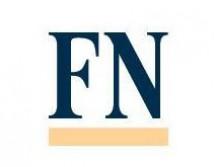
Africa attracts growing interest from ETF providers
Deborah Fuhr
A burgeoning middle class and recent rule changes that make it easier to sell foreign financial products are increasing Africa’s attraction as a market for exchange-traded funds.
The middle class has grown from 115 million in 1980 to 326 million and could exceed China’s by 2035, according to the African Development Bank. And the workforce is young by global standards. So the market is growing, but what made it more accessible to foreign exchange-traded funds and mutual funds was rule changes issued in December in South Africa, the continent’s financial powerhouse.
The country is seen as an attractive financial market, with $236 billion in pension assets at the end of last year – the 10th largest pension market in the world, according to Towers Watson.
Until recently it was not possible to market most foreign ETFs or mutual funds in South Africa as its rules on collective investment schemes require a structure where a trustee provides fiduciary control, acts as the custodian and must be independent of the fund manager, which provides fund administration and marketing but usually outsources the investment decisions to an asset management company. This is not the typical ETF structure elsewhere.
Under the guidance from South Africa’s Financial Services Board on foreign collective investment schemes implemented early this year, the FSB is willing to consider foreign schemes not by their structure, but by whether their country of origin has regulation “of similar standing” to South Africa’s.
The guidance says the FSB’s registrar of collective investment schemes “is not averse” to investments in schemes that comply with the EU Undertakings for the Collective Investment in Transferable Securities (Ucits) directive, because they are intended for retail investors. It adds that the registrar is wary of permitting Ucits schemes it deems riskier than the traditional investments available in South Africa, and therefore prefers Ucits-compliant ETFs or mutual funds in which derivatives are not used to leverage the portfolio and are covered at all times, and in which investment in synthetic instruments is not permitted.
Local ETFs have existed in South Africa for nearly 14 years. The Satrix 40 ETF, tracking the FTSE/JSE Top 40 index, was the first listed on the Johannesburg Securities Exchange in 2000. Originally jointly owned by Sanlam and Deutsche Bank, it became a wholly owned subsidiary of the Sanlam Group in 2012. Analysis by ETFGI shows there were 73 ETFs/ETPs, with assets of $7 billion, from 13 providers listed on the JSE at the end of April.
There are not currently any foreign ETFs cross-listed on the JSE. The regulatory changes mean it is likely foreign ETFs will be registered for sale and maybe even cross-listed in South Africa in the future. The exchange-traded notes that are listed on the JSE are regulated by the JSE and not the FSB, because they are considered senior unsubordinated debt and not funds.
Investors in South Africa face limitations on where and how much they can invest, based on exchange controls and foreign investment limits. Pension funds and institutional investors must comply with Regulation 28, which stipulates a 20% limit on foreign assets, which can be increased to 25% for Africa exposure. Retail investors have a Rand 4 million ($374,000) foreign allowance.
Some local ETFs providing exposure to international benchmarks can be used by non-institutional investors to diversify their investment portfolio with no exchange control limits.
ETF initiatives are beginning to happen across Africa. ETFs from South Africa have been cross-listed in Botswana (2), Ghana (1) and Mauritius (2). Nigeria has 1 cross listing and 1 primary listing. The first ETF is expected to be listed soon in Egypt, and Kenya has recently conducted a request for proposal for work on the development of regulations for ETFs.
http://www.efinancialnews.com/story/2014-06-17/africa-attracts-growing-interest-from-etf-providers-deborah-fuhr-etfgi
